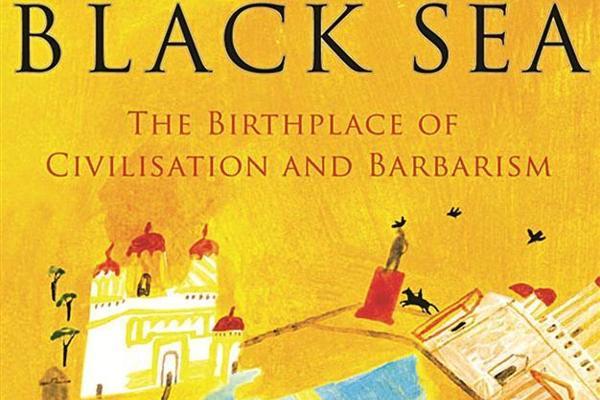‘Black Sea: The Birthplace of Civilisation and Barbarism’
William Armstrong - william.armstrong@hdn.com.tr


The casual browser would be forgiven for assuming that Neal Ascherson’s “Black Sea…” was a lighthearted travelogue across the modern-day Eurasia region, in the same entertaining middle-brow tradition as a Michael Palin or a Paul Theroux. That would be a mistake, but when you get lost in its complex maze of recondite allusion and dense historical meditation, you sometimes wish that it was such a book. Still, on the whole, it makes for a satisfying, unorthodox, intellectually-stimulating read, even if at times it is rather bitty and fragmented.
The grabby subtitle, “The Birthplace of Civilization and Barbarism,” refers to the encounters between the nomadic native Scythians and the Ionian Greek settlers who established coastal colonies all around the Black Sea in the classical period. Ascherson suggests that the Greeks’ reflections on these meetings amounted to the “first colonial encounter in European experience,” which forms the intellectual anchor for the book’s study of the relationship between the center and the periphery, and its imaginative shifts between past and present.
The troubled question of contemporary nationalism in the region also emerges from these concerns. Giving urgency to Ascherson’s otherwise lofty explorations is the fact that he wrote the book in the early 1990s, at a time when much of the region was falling under the dark shadow of the ethno-national conflicts unleashed by the collapse of the Soviet Union. Ascherson was particularly well placed to interpret what was happening, having spent almost his entire journalistic career in Eastern Europe. Snapshots are thus offered of particular areas (the Crimea, Odessa, Trabzon, Georgia, Abkhazia) and peoples (Cossack, Pontic Greek, Turkic, Laz, Slav, Caucasian, Jewish, Armenian, Kartvelian), all of which are carefully chosen to probe the book’s central preoccupation with history, identity, and the seductive fallacies of crude modern nationalism.
Particularly good are the sections on the coastal town of Odessa, which sounds attractive in the same way that Istanbul is: a rich, occasionally glorious past, awash with romantic exiles and cosmopolitan port-city intrigue, abruptly clashing with a present-day reality of profound seediness. The same section also includes a long digression on Polish romantic revolutionary poet Adam Mickiewicz, who spent many years in exile in Odessa and later died in Istanbul (incidentally, there is now an unremarkable museum dedicated to him in the latter’s Tarlabaşı district). He doesn’t choose to, but Ascherson could have reflected on the irony of Polish rebels against the Russian Empire finding common cause with the Ottomans, who were themselves busy at the time trying to put down similar rebel movements against their own rule in the Balkans. History continues to stumble along with such convenient blindness.
Through the example of Mickiewicz, the reader also gets a brief history of the nineteenth century Polish independence struggle, which gives some idea of the free-ranging nature of the book, (the nearest border of present-day Poland being 500 miles from the shore of the Black Sea, and not linked by any river). However, such meandering is never frivolous and is always done with an awareness of the broader structure that it’s working within. Indeed, there’s little frivolousness in any of the book, which remains stubbornly unleavened by humor throughout, and does occasionally descend into pretentiousness.
Nevertheless, “Black Sea…” generally keeps all its plates spinning successfully throughout, mining the ancient and recent history of both people and place to illuminate the origins of their modern conflicts. Writing from the battered little micro-state of Abkhazia towards the end of the book and surveying the wreckage of its bloody recent conflict with Georgia, Ascherson draws together all his ambitiously woven threads and has some penetrating things to say about nationalism across the region in the post-Soviet era:
As individuals, ‘the others’ are not strangers but neighbors, often friends. My sense of Black Sea life, a sad one, is that latent mistrust between different cultures is immortal. Necessity, and sometimes fear, binds such communities together … The apparent solidarity of centuries can dissolve within days or hours. The poison, upwelling from the depths, is absorbed by a single breath … When the fear is removed, through the collapse of empires or tyrannies, the constraint is removed too.
These are wise and melancholy words, all the more powerful for the fact that there are myriad modern examples – by no means restricted to the Black Sea region – sadly attesting to their truth.
Released this week
Hardcover, Random House, $30, pp 544
